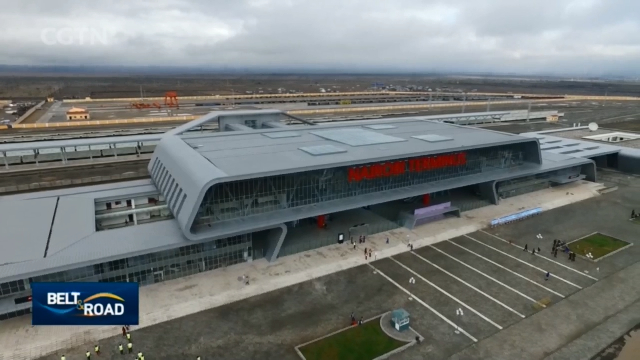
21:13, 30-Aug-2018
Fueling Connectivity: Kenya's flagship Standard Gauge Railway project rolls into new phases
Updated
20:45, 02-Sep-2018
02:42

In Kenya, a Chinese-funded infrastructure project is rolling right along. It's the Standard Gauge Railway line. It already connects the port city of Mombasa with the capital Nairobi. CGTN's Robert Nagila tells us how the next two phases are lining up.
ROBERT NAGILA NAIROBI, KENYA "The standard gauge railway is Kenya's flagship project. The most expensive infrastructural project undertaken by the country. The first phase connects the port city of Mombasa and the capital Nairobi."
Built and financed by China at a cost of 4 billion dollars, it was launched in June 2017. The second phase, set for completion in May 2019 connects Nairobi to the town of Naivasha 120 kilometres away.
The final phase will take the rail line to the city of Kisumu, where a new Port will be built by the shores of lake Victoria with the rail line terminating at the Kenya, Uganda border at Malaba.
UHURU KENYATTA KENYAN PRESIDENT "Once it is at Lake Victoria, it opens up the rail line to Uganda, Burundi, Rwanda, Tanzania and ultimately the Democratic Republic of Congo and Zambia. This opens up trade, makes transport less costly and improves opportunities for investment as well."
ROBERT NAGILA NAIROBI, KENYA "The SGR is in part of the country's development blueprint, the vision 2030. The Mombasa, Malaba line is envisaged to have a haulage capacity of 4,000 tonnes with speeds of up to 80 kilometers per hour.
Freight capacity of the line is 22 million tonnes per annum. Each passenger train has a capacity of 1,200 passengers with a speed of 120 kilometers per hour.
ROBERT NAGILA NAIROBI, KENYA "This has greatly reduced travel times between Mombasa and Nairobi by up to 5 hours. And by Up to 8 hours for cargo freight compared to the previous 24 hours."
The SGR is expected to directly benefit the economy by reducing cost of doing business. Sectors such as agriculture, manufacturing, and trade will benefit from efficiency and ease of bulk transportation
ROBERT NAGILA NAIROBI, KENYA "Construction of the first Phase created about 35,000 direct and indirect local jobs. To date, more than 500 Kenyan youth trained on railway technology courses. Robert Nagila, CGTN, Nairobi."

SITEMAP
Copyright © 2018 CGTN. Beijing ICP prepared NO.16065310-3
Copyright © 2018 CGTN. Beijing ICP prepared NO.16065310-3